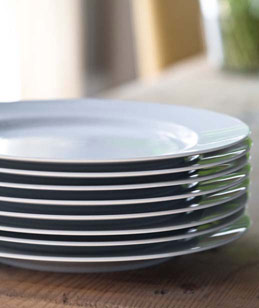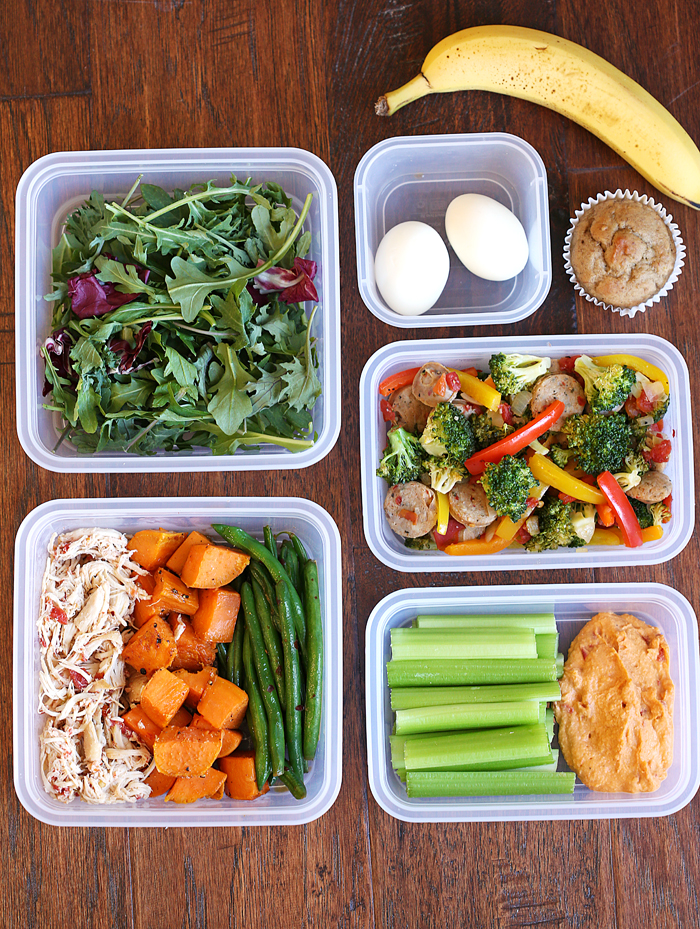This Many Meals Per Day May Be Better For You Than Three

For as long as many can remember, three was the magic number when it came to answering the question of, “How many meals should I eat in one day?” The common thinking was to eat breakfast right after you woke up, eat another meal around 12pm and eat your last meal around 6pm for dinner. Then, all of a sudden, nutritionists and medical news sites everywhere were claiming that the optimal amount of meals per day was six small meals, not three big meals. However, the claim, eating six meals a day can help accelerate your metabolism and make you lose weight, is not entirely true, according to new dieting advice.
The U.S. Department of Agriculture explains that people who consume six meals a day will experience less cravings because they are eating meals about every two to three hours in a day. Each meal must contain about 300 to 400 calories in order to average the suggested 1,800 to 2,400 calories an adult must consume per day. These calories are used to balance and replenish the body with the energy it loses throughout the day through physical exertion and metabolic reactions. A metabolic reaction is the process your body performs to break down the nutrients in the food you have consumed. These calories then “combine with oxygen and release the energy your body needs to function based on height, weight, age and gender. You gain weight when you eat more calories than you burn, or burn fewer calories than you eat from either over consuming or lacking physical activity.”
How Metabolism Works
The first step in understanding how many meals your body needs per day, is first understanding how your metabolism works. Your metabolism is the rate in which your body processes and burns calories. According to the American Society for Clinical Nutrition, each piece of food that you swallow has a thermogenic effect of food that increases your metabolism to a certain degree. “It measures the amount of calories needed to process the food you ate by 10 percent of total calories. If during breakfast you ate 400 calories, it took your body about 40 calories to process the entire meal.” In 2012, Harvard Medical School led a study that compared foods with different glycemic levels. They found that diets reduce the surge in blood sugar after a meal (especially a low carb diet) and are optimal for those that are attempting to lose weight. Lead study author, Dr. David Ludwig explained, “Total calories burned plummeted by 300 calories on the low-fat diet compared to the low-carb diet, which would equal the number of calories typically burned in an hour of moderate-intensity physical activity.”
Three Meals A Day
Consuming three meals per day is the timeline that Americans have been following since European settlers arrived in the New World, according to MedicalDaily.com. Keeping up that tradition would mean you must consume about 600 to 800 calories per meal, which would add up to the 1,800 to 2,400 calories needed per day. If you are choosing to stay traditional and follow the “3 Meal a Day” plan, you must eat a hearty breakfast, eat lots of protein for lunch and consume something very filling for dinner like pasta with a protein. On this meal plan, it is very common to continue being hungry between meals so you will need to snack on healthy alternatives like nuts. Timing is key following this meal plan – “If you eat dinner too late, you’ll wake up feeling sluggish and it dramatically increases your risk of developing acid reflux disease”, explains digestive expert Dr. Jaime Koufman.

Six Meals A Day
Eating six meals a day means you are constantly eating. You’ll want to start your breakfast very early because by the time you get to work or class, you’ll be hungry again. The key to eating 6 meals a day, means packing lots of food if you are always on-the-go. You’ll most likely eat lunch earlier than normal because you need to make time for a second lunch (yes, a second lunch!) By the time 4pm rolls around, you will be hungry again. Eat lots of protein but always be sure to balance the calories consumed with the calories burned.
Deciding on whether to follow a three or six meal a day routine is completely up to you. Always be sure to follow a regimen that works best for your body; speak to a nutritionists for a balanced and healthy meal plan. And, when choosing an eating routine, realize that not all calories are the same, be selective when it comes to your food choices and remember -portions always matter.
Source: http://www.medicaldaily.com
How many meals do you consume throughout the day? Have you noticed a difference in your weight or your metabolism?